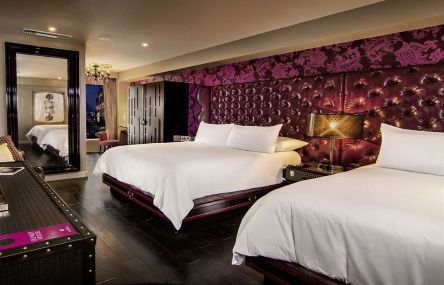Before coworking became an industry, we had coffee shops. Any café with free internet became a place where students and professionals would settle in for work. In the age of coworking spaces, coffee shops are still formidable competition—and tech innovations make the competition stronger. Coffee shops are cashing in as flexible workspaces We’ve all witnessed the coffee shop scene: with a beverage nearby, individuals and small groups hammer out ideas on their laptops or in hushed conversations. Sometimes, we’re one of them. Other times, we vie with them for table space. Coffee shops are the original flexible workspace, and more shops are converting available square footage to fill climbing demand. Awake Coffee Company opened in metro Atlanta in 2015. It was a small, tight space that wasn’t conducive to working. I went twice before finding a different spot. In 2019, Awake moved just one block away to a larger location, and now you can’t keep me out of it. It offers formal and informal coworking quarters alongside its cozy coffee operation. Awake isn’t the only shop cashing in on flexible workspaces. An increasing number of cafes seek a bump in revenue by offering coworking plans. Even restaurants in major metros are getting their cut of the pie. The New York Times reported on the shift, and it continues to gain momentum. New industries blossomed from the shift. KettleSpace and WorkEatPlay both specialize in turning food-focused locales into coworking spaces. Their clients’ clientele are people who don’t want to pay several hundred dollar or more per month for a coworking space. Additionally, they crave a relaxed, social atmosphere. These are freelancers, contractors and gig workers who love what they do because it doesn’t require a designated space. Yes, you can hold your own with the...
Inclusive Hospitality...
Changing the status quo
At its core, the travel industry encourages new experiences and exploration. It invites guests to find comfort in unknown terrain and discover a sense of belonging amongst new people. Unfortunately, the travel industry has not historically operated in the same welcoming inclusivity that it promotes. “This world is a diverse one—so how could the very industry that promotes the exploration of that world not be?” inquires Tiana Attride, editor at Here Magazine. As the sole black editor, often the only black staff member and commonly the only person of color at press events, Attride is frustrated by the lack of inclusion practices within travel businesses and marketing. Sheila Johnson, co-founder of RLJ Companies, a Yardi client, founder and CEO of Salamander Hotels & Resorts, has experienced a similar discord between travel industry messaging and practices. In her 40 years as an entrepreneur and 15 years focusing on hospitality, she has seen small improvements in inclusion and equity practices. “But there’s also the rub,” Johnson reflects. “I recognize we still can and should do more.” Both women, like other minorities interviewed from the industry, see a clear path forward. A foundation for success The first step to create a more inclusive hospitality industry begins with acknowledgement. “An unfortunate number of people in this country – black and white – are far from coming to grips with institutional racism, the kind of racism that is also baked into the very fabric of so many American institutions,” says Johnson. “For this reason, many people still cannot even talk about racism, much less actually do something about it.” But hospitality providers are strongly positioned to tackle the issue head on. “Our industry is a living laboratory of cultures. Every day we make it possible for team members from...
High Tech Hospitality...
There's an app for that!
In a world where getting around a foreign city is unimaginable without Google Maps, the hospitality industry has no other option than staying ahead of the curve when it comes to technology. The top hospitality players are aggressively expanding new ways to enhance guest experience with dedicated apps, software and even robots. Here are four of the technologies providing a whole new dimension to business and pleasure travel. Mobile Room Access is the hot new trend in the hospitality industry. Using a dedicated, hotel-branded app, guests simply swiping their mobile device across a specialized keypad to access their room. Some hotels have already rolled out mobile key cards, among them Starwood Hotels. Its dedicated Bluetooth-enabled SPG Keyless technology was launched in early November 2015 at its W, Aloft and Element brands, numbering close to 150 hotels totaling 30,000 rooms. Starwood Preferred Guest (SPG) members can download the app from the App Store or Google Play and register their device. When a guest’s upcoming stay is eligible for SPG Keyless, the guest receives a push notification and by opening the app is able to access the room by swiping it across a keyless pad. The Cromwell, the only standalone boutique hotel on the Las Vegas Strip, became the first hotel in Sin City to offer the trendy technology. Hilton Worldwide will start offering Hilton HHonors members mobile room keys at four of its brands starting early 2015 and will deploy the technology across 11 brands globally. Booking via Instagram. Courtesy of Conrad Hotels and Resorts, travelers can use the ‘gram not only to post enviable photos of their vacations, but also book a stay at one of its destinations. Guests simply click on an Instagram photo and via Curalate’s Like2Buy technology are redirected...



